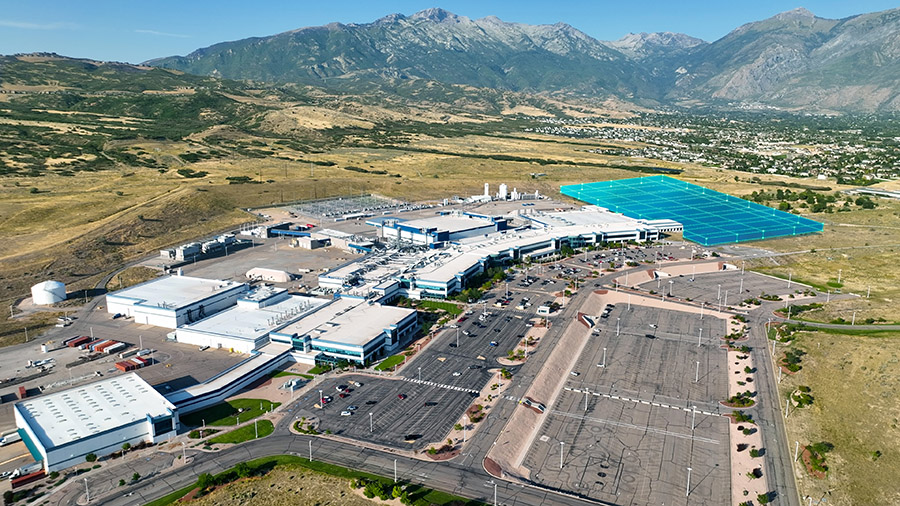On February 15th, Texas Instruments Inc., headquartered in Dallas, Texas, made public their plans to significantly expand their microchip manufacturing plant in Lehi, Utah. This expansion project, valued at $11 billion, is expected to generate a substantial number of new jobs, primarily in the high-tech industry. The state of Utah, through the Governor's Office of Economic Opportunity and the Economic Development Corp. of Utah (EDC Utah), has provided post-performance tax incentives of up to 30% to encourage this investment, which is expected to create at least 800 new jobs over the next two decades.

The semiconductor chip fabrication plant in Lehi, also known as a "fab," was originally constructed in the late 1990s by Micron Technologies, a company based in Boise, Idaho. In 2021, Micron sold the entire facility, along with surrounding undeveloped land, to Texas Instruments Inc. for $900 million. The facility comprises multiple buildings that offer a total of 2 million square feet of manufacturing space. TI undertook extensive renovations to enable the production of its latest generation of 300-mm semiconductor wafers, which are utilized by manufacturers worldwide in a variety of applications, such as automotive, industrial, communications, and personal electronics.
TI has announced plans to construct a new facility adjacent to the existing fab, and the two plants will operate in tandem. Haviv Ilan, TI's executive vice president and chief operating officer, as well as the incoming president and chief executive officer, stated in a press release announcing the project, "Our decision to construct a second fab in Lehi is a reflection of our commitment to Utah and is a tribute to the exceptional team working there that will pave the way for another significant chapter in TI's future. With the anticipated expansion of semiconductors in electronics, particularly in the industrial and automotive sectors, and the passage of the CHIPS and Science Act, there has never been a better time to boost our internal manufacturing capabilities."
According to Colby Cooley, EDC Utah's vice president of business development, TI representatives approached the state shortly after purchasing the Lehi plant to discuss the possibility of expansion. "They approached us when they made the acquisition of the facility and then they contacted us again last fall, and that's when we really got going on the process," Cooley stated. He also noted that the CHIPS Act was a major driving force behind the project.
Cooley explained that applicants seeking funding from the CHIPS Act were required to demonstrate a significant commitment to constructing a new facility. While TI and Utah officials did not provide any specifics on the timeline for design and construction, Ryan Starks, executive director of the Utah Governor's Office of Economic Opportunity, believes that TI is currently in the design phase. "They said they want to be aggressive with their expansion," Starks added.







